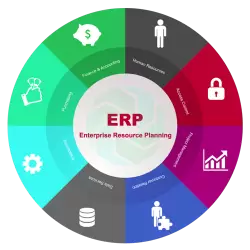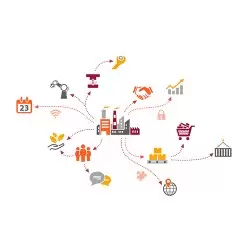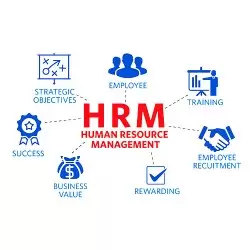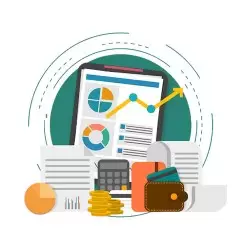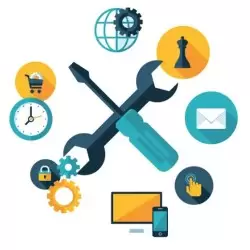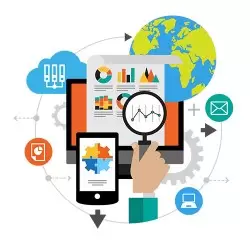Programming & Tech
ERP Development
Procuring ERP (Enterprise Resource Planning) development services is a critical decision for any organization looking to implement or enhance its ERP system. ERP systems are comprehensive software solutions that integrate various business processes and functions into a single platform, helping organizations streamline operations, improve efficiency, and make data-driven decisions. Here are the steps to consider when procuring ERP development services:
-
Define Your Requirements:
- Start by clearly defining your organization's ERP requirements. What specific functionalities do you need? What are your business goals and objectives? Document these requirements in detail to communicate them effectively to potential service providers.
-
Budget Allocation:
- Determine your budget for ERP development and implementation. Be realistic about the costs involved, which can include software licensing, customization, hardware, training, and ongoing maintenance.
-
Research Potential Service Providers:
- Conduct research to identify potential ERP development service providers. You can do this by:
- Asking for recommendations from industry peers.
- Searching online for reputable ERP development companies.
- Attending industry conferences and exhibitions to meet potential vendors.
- Contacting ERP software providers that may offer development services or partnerships.
- Conduct research to identify potential ERP development service providers. You can do this by:
-
Request for Proposals (RFP):
- Create a detailed Request for Proposal (RFP) document outlining your requirements, budget, and timelines. Share this RFP with the selected vendors to solicit their proposals.
-
Evaluate Vendor Proposals:
- Review and evaluate the proposals you receive from vendors. Look for a balance between cost, experience, and their ability to meet your specific needs. Consider factors such as their track record, client references, and expertise in your industry.
-
Interview Shortlisted Vendors:
- Conduct interviews with the shortlisted vendors to discuss your requirements in detail. This will help you assess their understanding of your needs and their ability to deliver a tailored solution.
-
Check References:
- Contact references provided by the vendors to learn about their past projects and client experiences. This can provide valuable insights into the vendor's reliability and service quality.
-
Negotiate Contracts:
- Once you've selected a vendor, negotiate the contract terms, including project scope, timelines, costs, and payment schedules. Ensure that all terms are clearly defined and agreed upon.
-
Project Implementation:
- Work closely with the chosen ERP development service provider during the implementation phase. Regular communication and project management are crucial to ensure a successful ERP deployment.
-
Testing and Training:
- Thoroughly test the ERP system to identify and address any issues. Provide training to your employees to ensure they can effectively use the new system.
-
Go-Live and Support:
- After successful testing, launch the ERP system and provide ongoing support to address any post-implementation issues or user questions.
-
Monitoring and Continuous Improvement:
- Continuously monitor the ERP system's performance and gather feedback from users. Use this information to make improvements and updates as needed.
Remember that ERP development is a significant investment, and selecting the right service provider is crucial to the success of your project. Take your time to assess your options and choose a partner that aligns with your organization's goals and values.
Quality management software (QMS) development
Quality management software (QMS) development involves ...
Human resource management software development
HRM software development involves designing, developing, ...
Inventory management software development
Inventory management software is a computer application ...
Financial management software development
Financial management software is a digital tool designed to ...
Manufacturing ERP development services
Manufacturing ERP development services involve customizing ...
Higher education erp systems development
Higher education ERP systems are software solutions that ...
Erp for wholesale distribution development
An ERP system for wholesale distribution is a software ...

